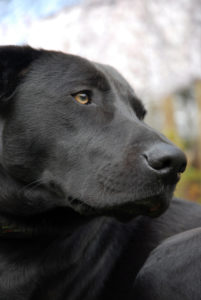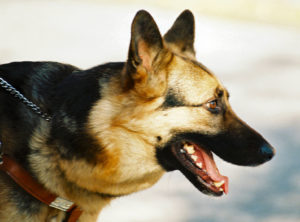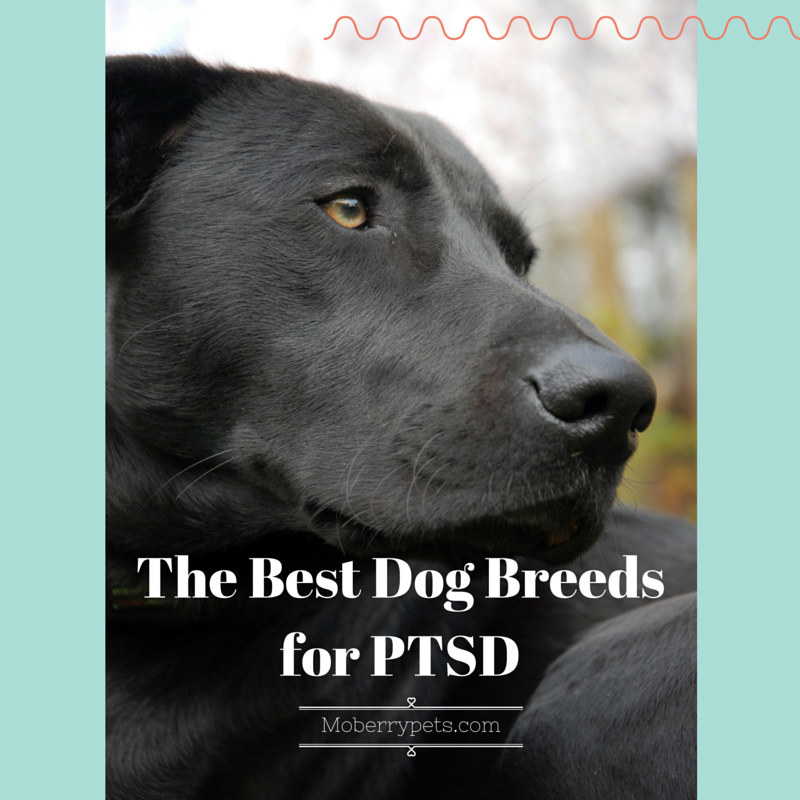In this article we’ll explore some of the best dog breeds for PTSD and how they can have a positive effect on those who suffer from it. Post-Traumatic Stress Disorder or PTSD is a psychological disorder that is caused by a traumatic event, or series of  traumatic events. PTSD can occur due to a significant car crash or other life threatening accident, being a victim of crime, or being caught up in a natural disaster.
traumatic events. PTSD can occur due to a significant car crash or other life threatening accident, being a victim of crime, or being caught up in a natural disaster.
In more recent times incidences of PTSD have increasingly come from experience in armed combat and military personnel may return from service with PTSD.
Being in a position where you fear for your life, and the lives of others around you, and feelings of helplessness all contribute to the occurrence of PTSD. Some people may only suffer from PTSD for a short time, but others live with PTSD over a prolonged period.
The Symptoms of PTSD
PTSD can cause the sufferer to relive the incident that caused it over and over. It can also change behavior and the person with PTSD may consciously or unconsciously avoid any reminder of the incident. They may become hyper-aware of any potential risk or danger which prevents them going about their everyday lives.
A person who develops PTSD may also have a number of other, associated issues such as depression and anxiety, and it can also lead to substance misuse.
How can Service Dogs help?
The best dog breeds for PTSD can be trained to carry out a variety of tasks such as assist in a medical crisis, and remind their owner to take their medication. They can also be trained to help calm their owner if they have a panic attack or they exhibit dangerous behavior. If the owner finds themselves in a stressful situation, then the service dog can guide them from that situation.
Generally, the best dog breeds for PTSD are those that can be trained to provide a calming and reassuring presence, and can help its owner manage the symptoms of the disorder.
The Best Dog Breeds for PTSD
When considering which breeds are the best dog breeds for PTSD it’s important to note there are no special requirements that differentiate between other service dogs. These skill can be learned by these intelligent breeds to help people with mobility or sensory impairments.
Characteristics of the Best Breeds
-
Calm temperament
-
Able to focus on their owner/human partner
-
Friendly and tolerant, not aggressive
-
Intelligent and trainable
A lot of dog breeds can make for a great service dog as long as they have the temperament and aptitude for the work. It’s about the individual dog, rather than the breed as a whole. Nevertheless there are several breeds that are considered the best dog breeds for PTSD that are more suited to this specific type of work.
Labrador Retriever
The Labrador has been used as a service dog for decades. They are hugely popular as seeing dogs and dogs for the hearing impaired, but they are also one of the best dog breeds for PTSD.
They are patient and caring animals, tolerant of noise and behavior, and they are highly trainable. Their intelligence and their temperament have made them incredibly popular as service dogs.
They are particularly sensitive to the emotional needs of their owner and can be trained to identify harmful behavior or actions that signal anxiety. They can also be of practical help by reminding their owners to take their medication and can be trained to alert someone if medical help is needed.
Their caring nature provides comfort and friendship to the owner, which is especially important if they suffer from depression and may find it difficult to leave the house.
German Shepherd
 German Shepherds are highly trainable pups with a high level of intelligence. This level of intelligence makes them one of the favored breeds in the military and police force because of it. They are strong, athletic and will need plenty of exercise.
German Shepherds are highly trainable pups with a high level of intelligence. This level of intelligence makes them one of the favored breeds in the military and police force because of it. They are strong, athletic and will need plenty of exercise.
This need for physical activity may be a positive if it encourages their owner to get out and about. But to those who are limited in their mobility it may be a negative if the owner can’t leave the house.
GSD’s are very protective in nature and this is one of the main reasons they are one of the best dog breeds for PTSD. They will certainly complement a PTSD sufferer who may need reassurances about their safety, especially if they ever experience paranoia or are hyper sensitive about potential danger or threats.
They can be large animals which may be expensive to feed and so this needs to be taken into consideration. However, they can be trained to take on the many tasks that a person with PTSD may need support with.
Golden Retriever
Goldens are one of the more traditional service dog breeds, these dogs are loyal, caring, patient and tolerant of noise and behavior. They are great animals for outside work because they aren’t easily distracted. Golden Retrievers are very in tune with the emotions of their owners and are one of the best dog breeds for PTSD for this very reason.
They have the aptitude to be trained to identify changes in behavior, mood and can also perform practical tasks. Things such as reminding their owner to take medication or alerting a care giver if there is a medical emergency or their owner is displaying harmful behavior can be learned quickly by goldens.
Their loyal nature is very useful as a companion to people with PTSD, especially because they are able to focus on the needs of their owner easily. They are often a great friend and comfort to their owners which only compliments their ability to be a great service dog.
Service Dogs Can Improve The Symptoms Of PTSD
Service dogs are increasingly being used to help people manage their PTSD. As incidences of PTSD become more common there is greater demand for service dogs with specialized PTSD training.
There are many tasks that service dogs are asked to perform to support people with PTSD. They need to perform practical tasks and also offer emotional support by recognizing emotional distress and guiding their owner away from the situation.
The best dog breeds for PTSD are the same breeds that are popular for all service dogs, but it is the temperament and aptitude of the individual dog that determines whether it is suited to becoming a service dog not just the breed.




